Business
Interrogating World Bank’s prescriptions for Nigerian Economy
Published
3 years agoon
By
Publisher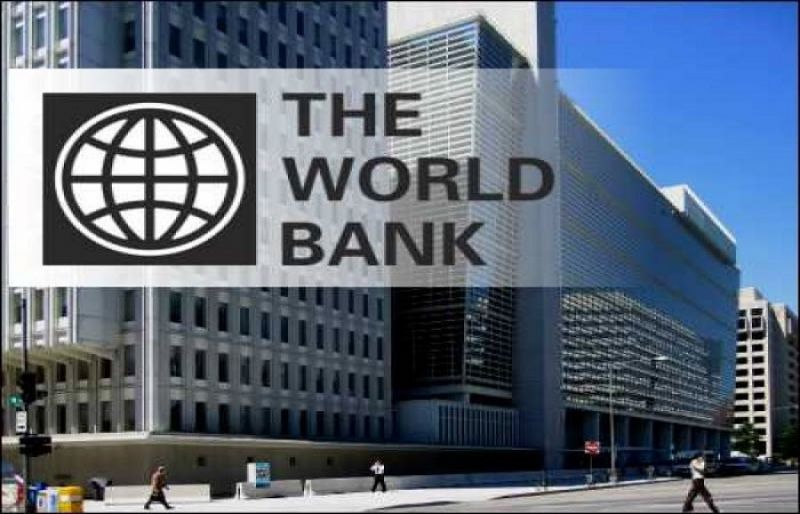
By Marcel Okeke
Without a doubt, the Nigerian economy has been in dire straits for a while, even before the onset of the corona virus pandemic (by March 2021) that is yet ravaging the globe. This is why in so short a period of five years (2016 to 2020), the economy had twice sank into deep recession; and all efforts of the government had focused on pulling the economy out of the chasm. Truly, the government has been pushing out a potpourri of policies and programmes, some of them ill-digested, to reclaim the economy from the doldrums. And this explains the countless number of ‘intervention packages’ from various agencies of the government, especially the Central Bank of Nigeria, to stimulate the economy and put it on a sustainable growth trajectory.
However, the economy has neither attained a momentum nor robust recovery; but a wonky and fragile limp—thus practically pushing the fiscal and monetary authorities to their wits end as to the way forward. This reality has unwittingly attracted the usually unpalatable and unpopular pontifications and prescriptions of the Bretton Woods institutions (the World Bank and the International Monetary Fund) for economic growth and development. Thus, in recent times the IMF and the World Bank have been showing ‘special interest’ on the way forward to any meaningful economic recovery and growth for Nigeria. The voices of these global institutions are becoming louder; their visitations and publications about Nigeria and its economy are becoming more regular than ever before. Their comments are getting more pungent and punchy; and their prescriptions now come with a ‘ring of urgency of now’.
And so, on a seeming note of flattery, the World Bank on November 23, 2021 said the Nigerian government took bold measures to mitigate the effects of the COVID-19 pandemic in 2020 through bold reforms, but observed that the momentum of the reform agenda had waned, thus undermining Nigeria’s long-term growth prospects. In its latest ‘Nigeria Development Update (NDU)’ titled “Time for Business Unusual,” the Bank highlighted what it termed urgent policy priorities that can be implemented over the next three to six months in four key areas: (1) eliminating the PMS subsidy while protecting poor and vulnerable households from any inflationary impact; (2) reducing inflation through a coordinated mix of exchange rate, trade, monetary and fiscal policies; (3) catalysing private investment by enhancing foreign exchange management, easing trade restrictions, and fostering a better business environment; and (4) addressing fiscal pressures through enhanced domestic revenue mobilization and reducing the reliance on CBN deficit financing.
A casual look at these prescriptions will show them as wholesome; yet, a dispassionate interrogation of some of them would show their (intended and incidental) deleterious impacts on the Nigerian polity, especially at this point in time. For instance, the issue of subsidy on PMS has been on the policy cards of successive Administrations in Nigeria for more than a decade. Now, the World Bank recommends that the subsidy must be removed in full in no more than six months.
But, how come the subsidy in the first place? Over the years Nigeria has been importing certain percentage of its PMS needs; and so, in order not to sell such PMS to the consumers at outrageously high prices (dictated by the cost of importation), Governments have been absorbing part of the costs. In the past couple of years, all the refineries (owned by the Federal Government) were shut down, and Nigeria has been importing all its PMS. And since the higher the price of crude oil (which Nigeria exports), the higher the price of PMS (since the refining nations import crude) which Nigeria imports (ceteris paribus), rising oil prices in the international market has become counterproductive for Nigeria. This scenario is getting worse to the point that what is being earned from crude oil export is now hardly enough to import sufficient PMS for the country and service its burgeoning external debt.
Now, compelled by the World Bank’s prescriptions, the subsidy must be removed in full in no more than six months (specifically, first quarter 2022). But the subsidy issue could have been better addressed ‘from the roots’ by the World Bank and Nigerian authorities, by determining why local refineries (owned by Government) cannot be run optimally in Nigeria. Could the local refineries not have been privatised much earlier than now? Is the cost of building new viable refineries beyond the purse of Nigeria? Or, is it an issue of political will or giving up on corruption in the Nigerian oil and gas sector—which has over the years rendered the local refineries unviable? Who benefits from shutting down of all the four refineries at the same time, as is the case now?
Obviously, full removal of the PMS subsidy at this point in time in Nigeria is inauspicious and portentous. Indeed, its ‘announcement effect’ is already reflecting in the hiking of the prices of all goods and services. So, when, in early 2022 and the expected over 100 percent rise in prices of PMS materialises courtesy of the subsidy removal, it will feed into cost of transportation, food prices, house rents, etc. Already, the organised labour and their allies in Nigeria are fast perfecting strategies on the ineluctable showdown with the Government when/if the subsidy removal happens. Specifically, the Nigeria Labour Congress (NLC) on Friday, December 17, 2021 “warned the Federal Government against the proposed fuel subsidy removal”, threatening that “the action will be met with nationwide protests.”
When this frightening eventuality is tied with the import of other policy prescriptions in the World Bank’s NDU, namely, reducing inflation through a coordinated mix of exchange rate, trade, monetary and fiscal policies, the portent of the unfolding scenario gets drearier. But what mix of policies will change the taste of majority of Nigerians in favour of locally made goods within the next six months, as demanded by the World Bank? Importation/consumption of foreign goods has been a way of life for most Nigerians; a lifestyle that has been draining the country’s stock of foreign exchange and ceaselessly weakening its local currency, the Naira.
Available data on Nigeria’s foreign trade vividly portray this trend: rapidly rising deficit (more imports than exports). The National Bureau of Statistics (NBS) latest figures show Nigeria having a trade deficit of more than one Trillion naira in the second quarter 2021; this gap widened to over three Trillion naira in the third quarter 2021 and is very likely to widen further in the last quarter of the year. Unsurprisingly, crude oil still accounted for about ninety percent of Nigeria’s exports, according to the NBS’ data, in the third quarter 2021, underlining the dangerously near-sole-dependence of the country on oil export.
The question is: what is the World Bank’s prescription for effective diversification of the Nigerian economy, so that the country begins to sustainably earn substantial foreign exchange from items other than crude oil? What are the Bank’s recommendations for dealing with failures and ‘wilful obstructions’ on Nigeria’s export channels (especially the seaports)? Not long ago, during a Presidential retreat by the Nigerian Government, President/CEO of the African Development Bank (AfDB), Dr Akinwunmi Adesina (a Nigerian) said inter alia: “…the cost of exporting 100 tons of cargo in Nigeria is $35,000, compared to $4,000 in Ghana. Today, the leading ports for West Africa are in Cote d’Ivoire, Ghana, Togo and Benin Republic. All these countries have modernized their port management systems, leaving Nigeria far behind.”
In the face of this dismal trend, what are the export processing zones and/or free trade zones doing to catalyse exporting from Nigeria? What of the Nigeria Export Promotion Commission (NEPC)—what are its contributions to Nigeria’s export drive? What about the agencies that see to the quality and standard of goods being exported from Nigeria? These agencies have been notorious for shoddy jobs, which result in many items from Nigeria being rejected, abandoned and rotting away in countries to where they are exported. So, how does the Government/World Bank deal with all these to reasonably jerk up Nigeria’s export and reverse the perpetual trade deficit debacle?
Given all these, it will be apposite to say that the ‘forced implementation’ of the World Bank’s prescriptions as contained in its latest ‘Nigeria Development Update’ is unlikely to jumpstart the country’s prostrate economy. At best, such a move will unleash more hardship upon the citizenry, induce social unrests and cause further impoverishment for a large segment of the populace. And perhaps this informed the seemingly pre-emptive move by the World Bank in arranging some “$800 Million Conditional Cash Transfer” for Nigeria. Unfortunately, the governor of each state in Nigeria is to set up a steering committee to oversee the disbursement of their own share of this ‘free money’.
The World Bank is doling out this money in liaison with the Nigerian Governors’ Forum (NGF) and the Federal Ministry of Humanitarian Affairs, Disaster Management and Social Development (FMHDS). But one danger in all this is the mixing of the politicians’ programmes and agenda with the purely ‘economic gesture’ of the global Bank. And transfer payments are not known to boost production or any economic activity—which are what Nigeria’s recumbent economy badly needs. We wait and see!
- Mr Okeke, a practising Economist and Consultant on Business Strategy and Sustainability, writes from Lagos. He can be reached at: [email protected] OR 08033075697 (SMS only)
You may like


Kwara customs records N10bn revenue from January to May 2024
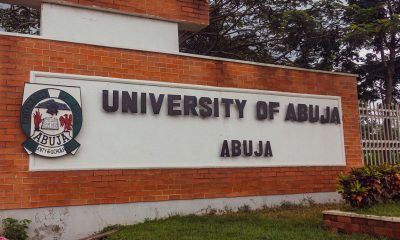

UniAbuja gets new Acting Vice Chancellor


Five kidnapped victims rescued in Kogi forest


Trio bag three years imprisonment for illicit drug dealing


Daddy Showkey recounts how he escaped being lynched for stealing
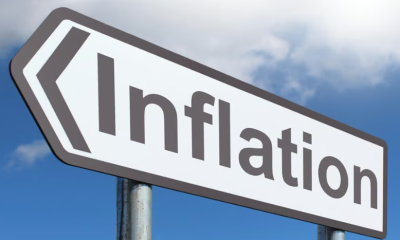

Nigeria’s inflation rate rises to 33.69 per cent
Trending
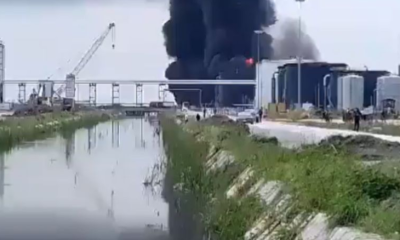
 Business6 days ago
Business6 days agoDangote assures public after Fire incident at Lagos refinery

 Business3 days ago
Business3 days agoNew journal on advertising will help deepen profession in Nigeria –Dr. Fadolapo

 Featured5 days ago
Featured5 days agoKwara customs records N10bn revenue from January to May 2024
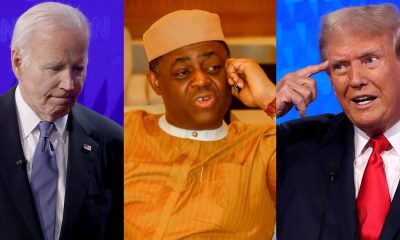
 Latest4 days ago
Latest4 days agoDonald Trump literally murdered Biden in presidential debate—Fani-Kayode

 Featured5 days ago
Featured5 days agoGeorgia shock Portugal 2-0 to advance at Euro 2024
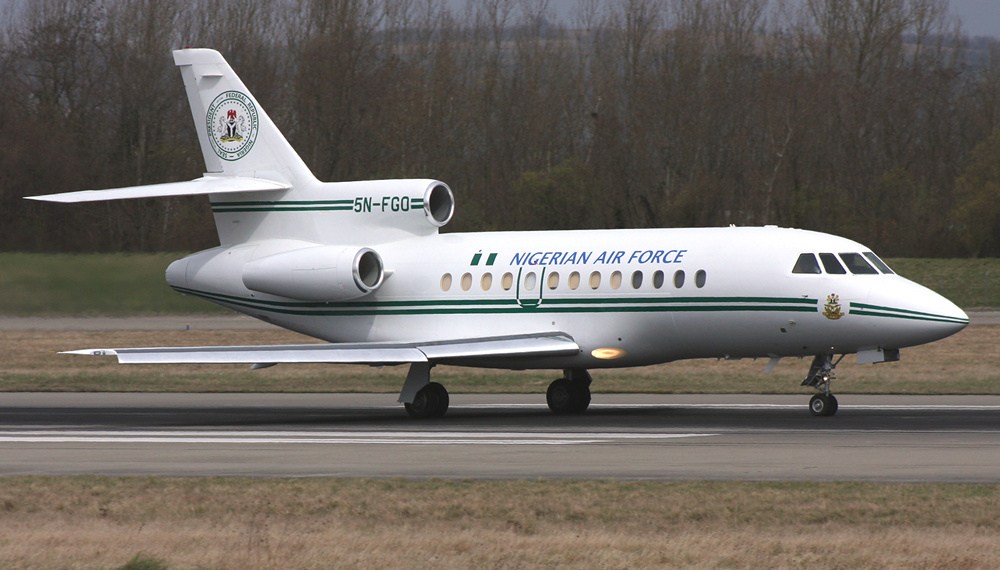
 Aviation1 week ago
Aviation1 week agoMy jet is bigger than yours

 Business6 days ago
Business6 days agoFire outbreak at Dangote refinery
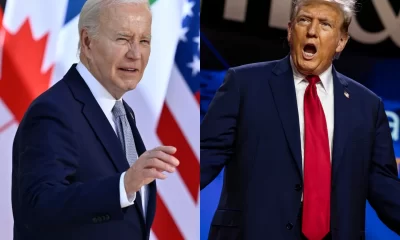
 Latest5 days ago
Latest5 days agoDemocrats shop for Biden’s replacement after ‘disastrous’ debate with Trump




